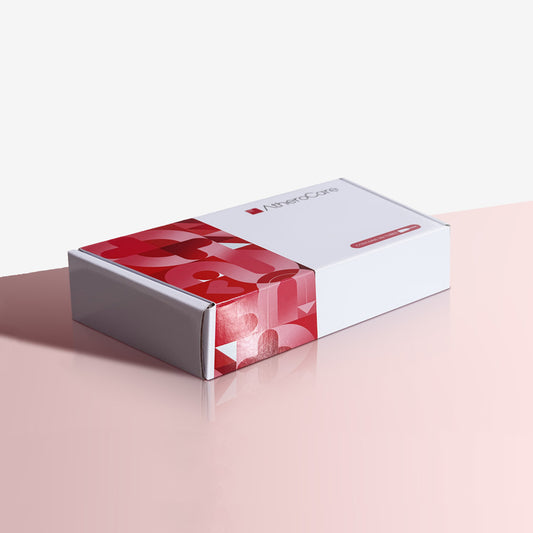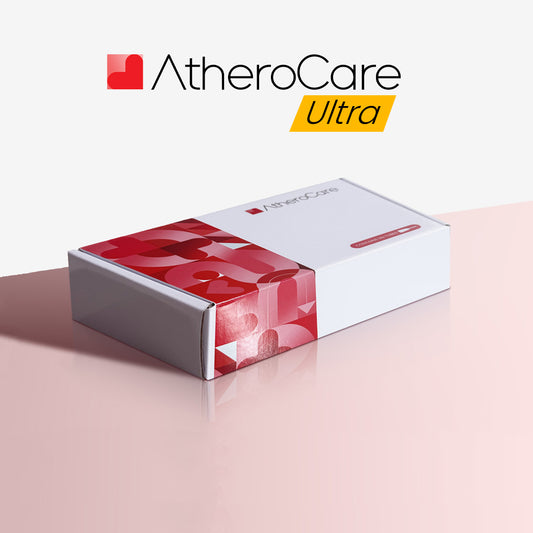When most people hear “cholesterol,” they think of fried foods, butter, or steak. But cholesterol isn’t just about diet — it’s about what’s happening silently inside your arteries.
Cholesterol is vital for building cells, hormones, and vitamin D. The problem starts when excess cholesterol forms plaque in artery walls, narrowing blood flow. This condition, known as atherosclerosis, often progresses without symptoms. By the time chest pain or a heart attack appears, the damage may already be advanced.
Beyond food: the hidden side of cholesterol
Changing your diet matters, but cholesterol management is more than what’s on your plate. Standard total cholesterol checks don’t always reveal hidden risks. People with “normal” results can still develop heart disease, while others with high numbers may remain healthy. That’s why tracking specific clinical markers is essential.
What to ask your doctor
- LDL (Low Density Lipoprotein): Known as “bad cholesterol,” LDL carries cholesterol into artery walls and drives plaque formation. Elevated LDL is a major risk factor for cardiovascular disease.
- HDL (High Density Lipoprotein): The “good cholesterol,” HDL helps clear cholesterol from arteries and transport it back to the liver. Low HDL increases cardiovascular risk.
- Coronary Artery Calcium (CAC) Score: A chest CT scan that measures calcium in coronary arteries — a marker for calcified plaque. Research shows CAC predicts heart events better than cholesterol numbers alone.
For reference: CAC = 0 usually means very low risk (1.3–5.6% event rate over 10 years), while CAC >100 indicates significantly higher risk.
Global perspectives: how cholesterol is managed worldwide
Screening recommendations vary by country, influencing what tests are common and when they’re offered:
- Australia: Lipid profiles recommended for adults over 45 (or 35 for Indigenous Australians). CAC scans available privately but not routinely covered by Medicare.
- Canada: Focuses on LDL and HDL. CAC scans mainly used for patients over 40 at intermediate risk to guide statin therapy.
- Europe: In the UK, cholesterol tests are part of the NHS Health Check (ages 40–74). CAC scans aren’t standard, but preventative cardiology clinics in Germany or the Netherlands often use them for patients with family or genetic risk.
- United States: Routine cholesterol testing is standard. CAC scans often require request or referral. ACC/AHA guidelines recommend CAC for refining risk in intermediate adults.
- Singapore & Asia-Pacific: Updated 2023 guidelines support CAC in asymptomatic adults 40+ with borderline-to-intermediate risk to guide statin decisions.
Why knowledge = power
Plaque buildup is slow and silent. By combining LDL, HDL, and CAC results, you gain a sharper, more accurate view of artery health. This data helps guide lifestyle adjustments and, if needed, preventative medications — far beyond what a basic cholesterol test shows.
What the global guidelines say
- Use CAC for asymptomatic adults aged 40+ with borderline or intermediate risk.
- CAC = 0 often means medication can be delayed, with retesting in 5–10 years.
- CAC 1–99 may prompt lifestyle changes or medication depending on age and other risks.
- CAC >100 strongly indicates plaque buildup — statins and aspirin may be recommended.
Each doubling of CAC score increases cardiovascular risk by ~14%, according to large studies like MESA (Multi-Ethnic Study of Atherosclerosis).
Taking action wherever you are
- Request a full lipid profile — including LDL and HDL, not just total cholesterol.
- Ask your doctor about a CAC scan if you’re 40+ and uncertain about your risk.
- Factor in your country’s guidelines but remember: you can always request extra testing.
- Use your results strategically — a CAC of 0 may delay medication, while a high score calls for proactive steps.
AtheroCare: supporting your journey
Managing cholesterol can feel complex, but the right knowledge makes it empowering. At AtheroCare, we provide resources to help you ask better questions, understand your risk, and take informed steps to protect your arteries and heart.







